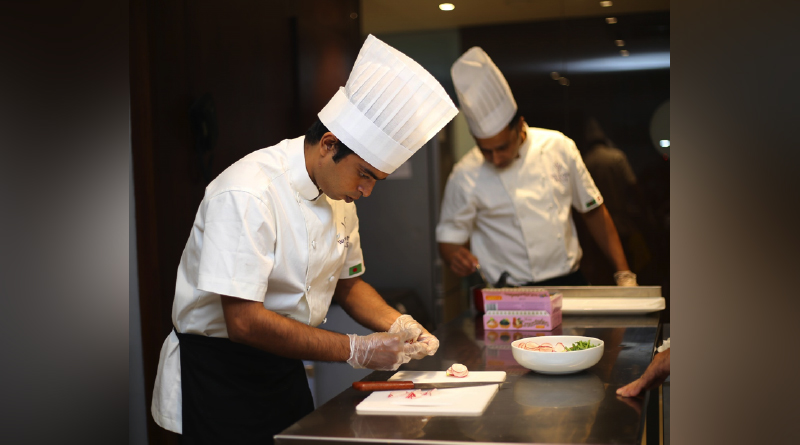One Third of Restaurant Owners say their Mental Health Was Worse at the End of 2021 than it was During the Pandemic Peak

UK restaurant owners have long been facing a mental health crisis but new research finds the pandemic and subsequent staff shortages has only fuelled the fire, according to Flipdish.
Data from 200 UK hospitality decision-makers reveals that 37% of restaurant owners believe their mental health has been hit badly due to the staff shortage crisis the sector has been facing, with nearly a third (29%) saying it’s the worst their mental wellbeing has ever been.
Despite pent-up demand on the rise from the eradication of all COVID-19 restrictions signalling recovery on the table for a hard-hit sector, this has left a bittersweet taste in restaurant owners’ mouths. Although hungry to capitalise on this uptick, the hospitality VAT tax hike of 20% came into effect earlier this month on April 1st, and was yet another blow.
With restaurant owners already battling a talent shortage whereby they are having to operate under reduced hours and output and compromise revenue, April 1st will mark the beginning of another tough road to financial recovery for many hospitality businesses.
A worrying 45% of restaurant owners are having to ask staff to work longer hours and 47% are having to work longer hours themselves to deal with the shortfall. In fact, 39% of the restaurant owners surveyed believe there should be more support from the government to attract talent back to the hospitality sector.
When asked about the impact the state of the labour market has had on their mental wellbeing, restaurant owners say that there isn’t enough support in the industry at all and the government should do more to support mental health (32%). Even more make the case for increased funding from the government to help with the fallout caused by the pandemic (38%), despite the £1bn care package announced by the Chancellor in December 2021.
Fionn Hart, UK Country Manager at Flipdish, says:
“The talent crisis, inflation, VAT rises, inconsistent restrictions and low cash reserves have given restaurant owners sleepless nights. As restrictions were completely lifted earlier in the year, office parties and social gatherings are on the rise causing a spike in the number of customers coming through the door”.
Restaurant, pub, and bar operators now have a difficult balancing act to perform; fulfilling these bookings and offering promotions to get new customers through the door, while simultaneously managing the reduced staff numbers on the ground to serve them. It’s time the government opens its eyes to the pressures on the hospitality workforce, who are battling to protect their mental wellbeing whilst also keeping their businesses afloat. It’s become clear that financial aid for the sector simply isn’t enough.”
Attilio Sergi, Owner of Pasta 51 restaurant in Liverpool, says:
“Many of us thought we had reached the light at the end of a long COVID-19 drawn out tunnel when all restrictions were lifted earlier this year. However, with business rates for hospitality reverting back to 20%, and surging energy costs, it seems that just as we thought we were in the clear, our sector is spiralling all over again.
With only a mere 5p per litre nationwide drop in the price of fuel, and the cost of living continuing to climb, consumers will be more savvy with how they spend their buck and so we expect a drop in the number of in-house diners. This, combined with the fact that at Pasta 51, we have shortened opening hours to save staff numbers and energy costs, means we are faced with yet another financial uphill battle. More needs to be done to support hospitality workers as we continue to navigate the anxieties of a tough labour market, tax hikes, and increased energy and produce costs”.
Kris Hall, Founder of The Burnt Chef Project – a not-for-profit social enterprise fully committed to making the hospitality profession healthier and more sustainable – says:
“High levels of stress and mental illness have been affecting our industry long before COVID-19, but this research demonstrates how brutal these past two years have been for hospitality owners. We find our sector in the middle of a severe resource crisis, with mass shortages worldwide as visitor numbers peak, yet staffing numbers continue to drop. Our own studies at The Burnt Chef Project echo these findings from Flipdish and have shown that work-life balance ranks highest as to why people do not want to return to what once was the third largest sector in the world.
The wellbeing of our teams has been neglected for far too long and the demand for our free support service, hospitality and wellbeing training modules and resources highlights just how much support hospitality professionals are in need of.
In order for the hospitality profession and industry to thrive, we need to provide our leaders with the skills to manage with confidence, empathy and ensure that the wellbeing of both themselves and their teams is priority. This is why we at The Burnt Chef Project believe in and dedicate our time not just to helping those who have mental health issues and need someone to talk to but we also focus on building the capability of the greatest asset in our trade, the people who make up the beating heart of our industry”.
Anyone in hospitality, their family or dependents experiencing difficulties with mental health can text “BURNTCHEF” to 85258 for free and in confidence 24/7 .
To help support restaurateurs, Flipdish has launched a not-for-profit directory, StraightFrom, as an alternative to food marketplaces and to encourage customers to order directly from their local restaurants. The site, which is free of charge, is open to all restaurants and takeaways, even if they are not customers of Flipdish.
